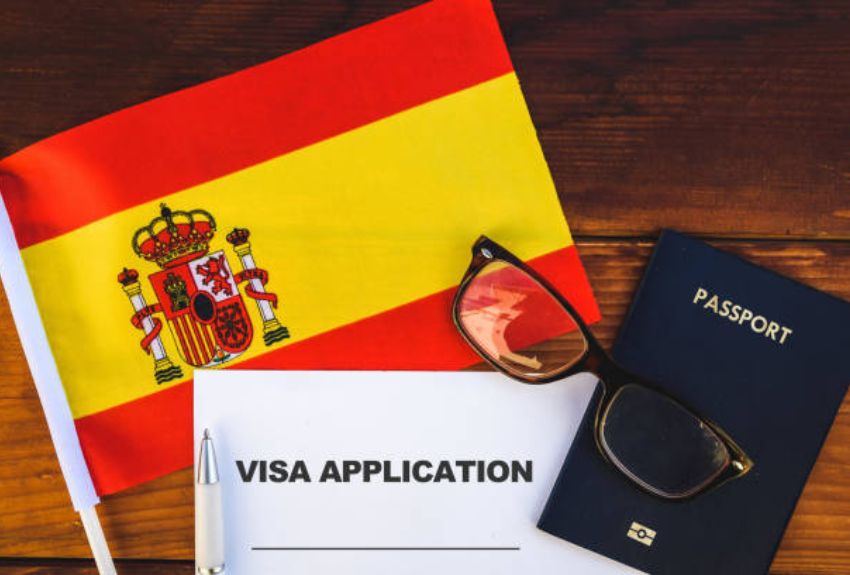
Dreaming of studying in Spain? With its top-ranked universities, vibrant culture, and sunny weather, Spain is a favorite destination for international students. But before you pack your bags, you need a student visa to make your dream a reality. This guide will take you through the step-by-step process, address common challenges, and help you confidently navigate your way to Spain.
Why Do You Need a Student Visa for Spain?
A student visa is mandatory for international students planning to study in Spain for more than 90 days. This visa allows you to live in Spain legally, pursue your studies, and, in some cases, even work part-time. If you’re from an EU/EEA country or Switzerland, the process is different as you don’t need a visa.
Types of Student Visas for Spain
Depending on your course duration, you’ll need one of the following visas:
| Visa Type | Study Duration | Details |
| Short-Term Visa (Type C) | Up to 90 days | For language courses or short programs. |
| Long-Term Visa (Type D) | More than 90 days | For full-time degree programs. |
For most international students pursuing higher education, the Type D visa is the one you’ll need.
Step-by-Step Guide to Getting a Student Visa for Spain
1. Choose Your Program and Get Admission
Start by selecting a university or program in Spain. Once accepted, you’ll receive an official admission letter, which is a crucial requirement for your visa application.
- Ensure the university is recognized by the Spanish government.
- Admission letters should include course details and duration.
2. Gather Required Documents
Preparing the right documents is critical. Missing papers can lead to delays or even rejection. Here’s a checklist of what you need:
| Document | Details |
| Completed Visa Application Form | Fill out the form accurately and sign it. |
| Valid Passport | Must have at least six months of validity and two blank pages. |
| Admission Letter | Official letter from your university. |
| Proof of Financial Means | Bank statements or sponsorship letters showing you can cover costs. |
| Health Insurance | International policy covering your stay (minimum €30,000 coverage). |
| Proof of Accommodation | Confirmation of where you’ll stay (hostel, rental agreement, or university dorm). |
| Passport Photos | Two recent photos, meeting Spanish visa photo requirements. |
| Visa Fee Receipt | Proof of payment for the visa application. |
| Police Clearance Certificate | To prove you have no criminal record. |
| Medical Certificate | Verifying you’re free from infectious diseases. |
3. Schedule Your Visa Appointment
Once your documents are ready, book an appointment at the nearest Spanish consulate or embassy in your home country.
- Check online or call the consulate for available slots.
- Ensure you bring all your documents to the appointment.
4. Attend the Visa Interview
During your appointment, you’ll be required to:
- Submit your documents.
- Answer questions about your study plans, financial means, and future goals.
- Provide biometric data (fingerprints and photos).
Be confident and truthful during the interview. The officers want to ensure you’re genuinely coming to Spain for studies.
5. Pay the Visa Fee
The visa application fee varies by country but is usually between €60–€120. Ensure you keep the receipt, as it’s required during your application submission.
6. Wait for Your Visa
Visa processing typically takes 4–8 weeks, so apply early to avoid delays. Once approved, you’ll receive a visa sticker on your passport.
What to Do After Arriving in Spain?
Congratulations! Once you’ve landed in Spain, there are a few more steps:
- Register for a Student Residence Card
If you’re staying longer than six months, apply for a TIE (Tarjeta de Identidad de Extranjero) within the first 30 days of arrival.
| Document for TIE | Details |
| Passport | With your visa sticker. |
| Proof of Address | Rental contract or university accommodation letter. |
| Application Form | Fill out the official form (EX-17). |
| Passport Photos | Two recent photos. |
| Fee Payment Receipt | Around €15–€20. |
- Open a Local Bank Account
A Spanish bank account makes managing your finances easier, especially for paying rent or receiving part-time job salaries. - Enroll in Your University
Complete your enrollment process by submitting your visa, passport, and other requested documents.
Common Challenges and How to Overcome Them
1. Delays in Processing
- Solution: Apply at least 3 months before your program starts.
2. Financial Proof Issues
- Solution: If you’re sponsored, provide a notarized sponsorship letter and the sponsor’s bank statements.
3. Language Barrier
- Solution: Carry translated copies of documents in Spanish if required.
4. Accommodation Problems
- Solution: Book temporary housing (e.g., hostels or Airbnb) before arriving, then find long-term accommodation once settled.
Cost of Living in Spain for Students
To plan effectively, here’s an estimate of monthly expenses:
| Expense | Estimated Cost (EUR) |
| Accommodation | €300–€700 |
| Food | €150–€250 |
| Transportation | €40–€60 |
| Health Insurance | €50–€100 |
| Miscellaneous (entertainment, etc.) | €100–€200 |
Why Choose Spain for Studies?
Spain is not just about stunning landscapes and delicious food; it offers excellent education opportunities, a welcoming environment, and a rich cultural experience. With affordable tuition, student-friendly cities like Madrid, Barcelona, and Valencia, and the chance to learn Spanish, studying in Spain is a life-changing experience.
Conclusion
Getting a student visa for Spain might seem overwhelming, but with the right preparation, it’s entirely manageable. Start early, follow the steps outlined here, and double-check your documents to avoid hiccups.
Spain awaits you with open arms and endless opportunities for learning and personal growth. So, take that first step and embark on your journey to academic and cultural exploration in this vibrant country!